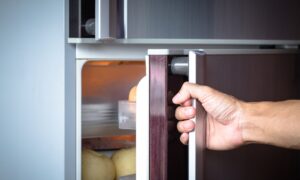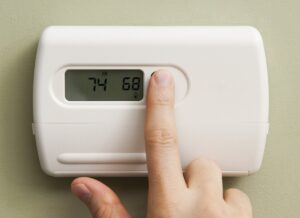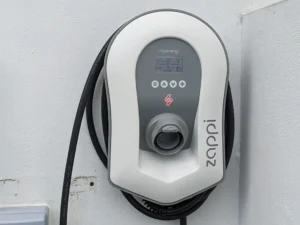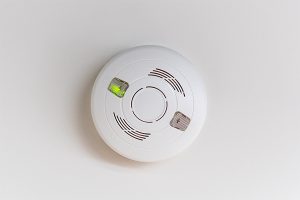What does wasted energy mean?
Now you’ll learn what’s energy waste is.

Ever find yourself in such a hurry to leave the house and forget to turn off the lights, heater, or other appliances? Preoccupied with work, school, etc. and don’t have time to make energy-saving a priority?
Such actions, however harmless as they seem, are among the main reasons for electricity waste in the average household. In addition, they can be heavy on your wallet.
That’s why the team at Westline Electrical Services collected a list of the common mistakes the average consumer makes. Our goal is to help you understand how we waste at home and what you can do to avoid misuse.
Wastage at home in numbers:
| Type of Appliance | Avg. Annual Consumption Standby Mode |
Avg. Annual Cost AUD $
|
| Cable / Satellite | 128 kWh | $21 |
| Stereo System | 128 kWh | $21 |
| Clock / Radio | 18 kWh | $3 |
| DVD Player | 59 kWh | $10 |
| PC | 16 kWh | $3 |
| Printer | 70 kWh | $11 |
| Routers & Modems | 102 kWh | $17 |
| Microwave | 26 kWh | $4 |
| Garage door opener | 24 kWh | $4 |
| 52″ – 65″ Rear Projector | 186 kWh | $30 |
| 50″ HD Plasma TV | 145 kWh | $24 |
But how we cause the wastage? Here are 11 ways that electrical wastage happens at home:
- Lights ON
- Incandescent Light Bulbs
- Your Appliances Stay Connected
- You Power an Empty Freezer
- Opening the Refrigerator Frequently
- You Run the Dishwasher Half-Full
- The Washing Machine Runs Hot Water
- You Set the Thermostat too High
- The Ceiling Fan Is Left on
- You Forget to Change the Air Filters
- Phantom Power
Without further ado,
1. You Leave the Lights ON
A bright home leads to big electricity bills. If you or your close ones frequently forget to turn off the lights after leaving the room, closet or hallway, it will lead to chronic energy waste.
2. Usage of Incandescent Light Bulbs
Worldwide we consume 2,900 TWh of energy per year for lighting according to the UN Environment model. Conventional incandescent lights convert less than 5% of the energy they use to produce light while we transform the rest into heat. Usage of
3. Your Appliances Stay Connected
You may ask yourself:
Is electricity wasted when devices work not but stay plugged in?
The answer is YES!
Electronics consume energy when they are on standby or even when turned off. If you leave your TV, printer, computer, and phone chargers always plugged in, you significantly contribute to energy wastage at your home. According to US junk & waste professional Luke Hancock, the excessive workload built up over time severely shortens the lifetime of appliances and thus contributes immensely to real-life, physical waste and pollution.
4. You Power an Empty Freezer
Freezers are great for food storage for the whole family or when you come across a sweet deal at the supermarket. Chest freezers are usually energy-efficient unless we use half-full or empty. They consume around 103 kWh and make your electricity bill slowly but steadily rise.
5. Opening The Refrigerator Frequently

Do you open the fridge, again and again, hoping its contents have changed?
Or you’re in the mood for a midnight snack?
Every time the fridge door is being opened, even for a quick peek, it adds up to 7% of the appliance’s total electricity use.
Another example of how electrical energy we waste is when you put warm food in the fridge. It causes the appliance to use more power and thus consume energy you could save if we leave your dish to cool down naturally.
6. You Run the Dishwasher Half-Full
Dishwashers can cause significant consumption of energy and water. Especially if you own a larger model and run it daily. The average appliance requires anywhere between 1500 to 1800 Watts of electricity per cycle. Therefore, daily usage can cost the average homeowner up and above $66 per year!
A different way of energy-wasting is to set the dishwasher to rinse with hot water. Keep in mind that some models have a dryer function which contributes to electricity usage and results in a bigger utility bill.
7. The Washing Machine Runs Hot Water
Around 80-90% of the energy used by a washing machine goes to heating water.
Older models are energy-inefficient and use up to 1300 Watts per cycle, which can increase your electricity bill. A key way of energy misuse is to run the washing machine frequently with small loads of laundry. The energy consumption is the same as one full load cycle.
There’s one more reason we strive to do a full load of laundry, especially if you wash synthetic clothes.
According to zero-waste living blogger Antonia, that fewer clothes in the washing machine lead to more friction. This motion releases harmful microplastics from polyester clothes that go straight to the ocean.
8. You Set the Thermostat Too High

In almost every home, the increase in electricity bills comes from incorrect usage of heating, air conditioning and ventilation. A 10-year-old unit could double consumption compared to electric-efficient ACs. The difference between an analog vs digital controller builds up most wintertime when thermostats keep temperatures above actual needs, thus causing significant energy waste occurs.
In many households, people set water heaters at 140 degrees daily, while the recommended temperature is 120 degrees, which also adds up to the utility bill.
Read also: How To Avoid Common Winter Electrical Hazards?
9. The Ceiling Fan is Left ON
Many households gain a ceiling fan for energy-saving. Sadly, sometimes it can do more harm than good.
The most common mistake is to leave the fan on when you are not at home. Another error occurs if you set your ceiling fan incorrectly. It works best if the direction of the blow is down in the summer and during the winter.
10. You Forget to Change the Air Filters
Another example of energy being wasted at home are dusty air filters and HVAC units. Flowing particles, such as dust and hair, stick to air filters when appliance runs. Therefore, if HVAC filters clog, the system will consume more energy.
11. Phantom Power
Ever heard of “phantom or vampire energy“?
The term stands for the power used by appliances and electronics when turned off but still plugged into a power outlet. Some vampire energy consumers are often devices operated with remote control (for example, TVs, DVD players or garage door openers).
Computers, laptops, and cable boxes are among the biggest phantom power users, which draw about 9 to 44 Watts in standby mode. While energy-saving is great, it can be hard if you have devices plugged behind a big shelf or entertainment centre.
Don’t discourage but take action!
Invest in power strips that offer you the opportunity to disconnect devices by flipping a switch without manual unplugging. Another benefit of disconnecting appliances is the lower risk of power surges.
Multiple studies confirm the plausibility of phantom energy adding up to $200 per year to the electricity bill of the average homeowner.
Note: We do not advice to plug and unplug sockets regularly for it can lead to injuries, especially for seniors.
How to Save Energy and Money
Now that you know how energy is being wasted at your home, perhaps it is time to turn over a new leaf and learn how to avoid electrical misuse.
The following will help you save energy consumption and as a bonus – trim your bills:
- Limit refrigerator browsing;
- Turn off lights when you are not in the room;
- Switch to LEDs, halogen or fluorescent light bulbs;
- Clean the air filters regularly and keep vents open;
- Upgrade your old energy-inefficient appliances;
- Dry the dishes manually;
- Use a programmable thermostat;
- Install motion sensor light sockets;
- Unplug devices or appliances when you are not using them;
Do you want to explore more energy-saving tips? Check out our helpful guides:
Use these tips to adopt energy-saving habits and maintain a financial and ecological balance at home.
Contact us today on (08) 9220 5201








